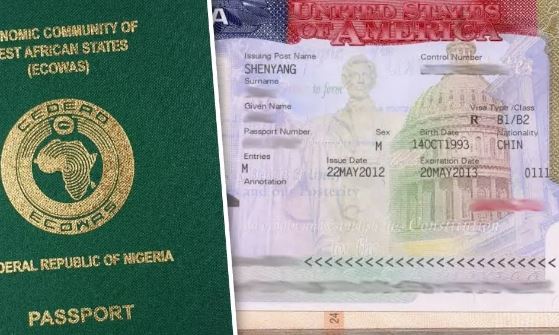Over the years, Canada has had a reputation for welcoming immigrants from Nigeria and offering them a high quality of life. According to CICNews.com, Nigeria was Canada’s fourth top immigration source country in 2022, welcoming 22,085 Nigerian immigrants, making up 5.05% of Canada’s total number of permanent residents.
By 2025, Canada’s immigration level plan is set to favor more Nigerians as the government plans to welcome 500,000 immigrants worldwide.
If you are looking for the best ways to relocate to Canada from Nigeria, I will be providing you with valuable tips and resources to help make your move as smooth as possible.
- KEY TAKEAWAYS: The Federal Skilled Worker Program (FSWP) offers Nigerians a pathway to permanent residency even without a job offer in Canada.
- The Provincial Nominee Program is recommended for you if you have a low CRS score and are willing to meet specific labor needs in Canadian provinces and territories to get permanent residency.
- Study permits offer Nigerian students a pathway to Canada, with opportunities to work during studies and pursue permanent residency upon graduation.
- Nigerian citizens can explore job opportunities in Canada and obtain work permits, depending on the specific job offer and requirements.
Table of Contents
Best Ways to Relocate to Canada from Nigeria
As Nigerians, we are not only focused on Canada’s strong economy, advanced healthcare system, and top-notch education system that it offers. We are also interested in finding affordable and efficient ways to immigrate to Canada.
Based on general experiences, the best ways to enter Canada are through:
- Federal Skilled Worker Program
- Provincial Nominee Program
- Canadian work permits
- Study Permit
- Atlantic Immigration Program
Federal Skilled Worker Program
If you are a skilled worker with good work experience in Nigeria and educated, have language skills (in English or French), and possess other human capital factors that will help you quickly become established in Canada, the Federal Skilled Worker Program (FSWP) may be the best option for you. The best part of this immigration route is that even if you don’t have a job waiting for you in Canada or any connections there, you can still apply to become a permanent resident.
The FSWP is one of the programs managed under the Express Entry system that manages the FWSP, the Federal Skilled Trades Program (FSTP), and the Canadian Experience Class (CEC).
This immigration route targets foreign skilled workers who have foreign work experience, education, language skills, and other human capital factors that will help them become established in Canada. To be eligible for the program, you must meet the following criteria set by the Immigration, Refugees and Citizenship Canada (IRCC):
- First, you must have at least one year of continuous full-time or equivalent paid work experience in the last 10 years in a skilled job categorized under the National Occupational Classification (NOC) TEER categories 0, 1, 2, or 3. Examples of jobs in this category include Dental Assistants, Financial Advisors, Laboratory Technicians, Office Managers, Trades (such as carpenters, plumbers, and contractors), STEM professions, Healthcare, and Agriculture and agri-food.
- You must demonstrate language proficiency equivalent to Canadian Language Benchmark (CLB) 7 in English or French, covering all areas: reading, writing, listening, and speaking.
- Hold either a Canadian educational certificate, diploma, or degree or an equivalent Nigerian certificate along with an Educational Credential Assessment (ECA) report.
- Score at least 67 points across the six immigration selection factors determined by IRCC.
- Have sufficient funds to support yourself and your family for settlement in Canada.
How do I apply for FSWP from Nigeria?
Once you confirm your eligibility for the FSWP, the next step is to apply;
- First, sign up and upload your Express Entry profile onto the IRCC website.
- After submitting your profile, you will be given a Comprehensive Ranking System (CRS) score based on human capital factors such as age, education, work experience, and language ability, among others. If your CRS score is high, you stand a chance of being invited to apply for permanent residence in Canada.
- IRCC holds Express Entry draws approximately every two weeks. If you score above the required CRS score in these bi-weekly draws, you will get an Invitation to Apply (ITA) for permanent residence.
- Once you receive an ITA from IRCC, you can submit your completed permanent residence application to IRCC. You can then move to Canada after IRCC completes the processing of your application.
Provincial Nominee Program
The Provincial Nominee Program (PNP) is another best option for many Nigerian citizens looking to relocate from Nigeria to Canada. The PNP offers permanent residency for successful applicants.
Canada is situated across a vast territory, and it is the second-largest country in the world after Russia. The Country has 10 provinces and 3 territories with unique landscapes, demographics, and worker needs. Some provinces are more densely populated than others, and certain provinces have a significant lack of skilled worker availability in particular sectors.
This is where skilled immigration to Canada from Nigeria can be highly valuable to the country. You can relocate to Canada from Nigeria and fill these job gaps, provided you meet the required eligibility criteria.
To find out whether you meet the minimum requirements for their nomination program, you must contact the province of interest.
Here below are the website links to various Canadian provinces and territories that can offer you permanent residency if you apply:
- Alberta: Alberta Advantage Immigration Program
- British Columbia: British Columbia Provincial Immigrant Nominee Program
- Manitoba: Manitoba Provincial Immigrant Nominee Program
- New Brunswick: New Brunswick Provincial Nominee Program
- Newfoundland and Labrador: Newfound Land and Labrador’s Provincial Nominee Program
- Northwest Territories: Northwest Territories Nominee Program
- Nova Scotia: Nova Scotia Nominee Program
- Ontario: Ontario Provincial Immigrant Nominee Program
- Prince Edward Island: Prince Edward Island Provincial Nominee Program
- Saskatchewan: Saskatchewan Immigrant Nominee Program (SINP)
- Yukon: Yukon Nominee Program
In addition, you can also apply by entering into the Express Entry pool and be invited for immigration by a province that will select you from the federal pool.
If nominated through Express Entry, you will receive an additional 600 CRS points, which virtually guarantees you an invitation to apply (ITA) for permanent residence in an upcoming Express Entry draw. The advantage of this pathway is that you stand a good chance of getting invitation to apply for PR, even with a low CRS score.
Canadian work permits
Another way for Nigerian citizens to relocate to Canada is to find a job there and get a work permit. Canadian work permits are divided into two programs: the Temporary Foreign Worker Program (TFWP) and the International Mobility Program (IMP). The main difference between the two is that a Labour Market Impact Assessment (LMIA) is required for the TFWP, while it is not for the IMP.
The purpose of the LMIA is for an employer to demonstrate that hiring you will either have a positive or neutral effect on the Canadian job market.
In many cases, a job offer from a Canadian employer is required before you can apply for a work permit. But, there are some situations where IRCC allows for an open work permit, which is not employer-specific and allows you to work almost anywhere across Canada.
You can search for jobs from Canadian employers who want to recruit temporary foreign workers through the link below. These employers have already obtained or applied for a Labour Market Impact Assessment (LMIA). Use this link here to find a new job in Canada.
Study Permit
This pathway is popular among Nigerian students and it is still among the best way to relocate to Canada. According to CICNews, Records show that In 2023, over 16,000 Nigerian students moved to study in Canada from Nigeria. This means Nigerians still see this pathway as a viable option.
Once you apply to your school of choice and get accepted, you can apply for a study permit. The benefit of a Canadian study experience is that a study permit can provide an opportunity to work while you study and offers a permanent resident pathway upon graduation. Besides, many federal and provincial programs value candidates that have Canadian education and work experience.
Atlantic Immigration Program
The Atlantic Immigration Pilot (AIP) is also among the best ways for Nigerians looking to relocate to Canada. The system offers a 6-month processing time. The program concentrates on recruiting newcomers for the four Atlantic provinces of Canada to fill the labor gaps in these provinces with qualified immigrants with work experience. The provinces are:
- Prince Edward Island,
- New Brunswick,
- Nova Scotia,
- and Newfoundland and Labrador.
Currently, the AIP program is divided into three streams and you can make use of the applications links below to get your work permit:
- Atlantic International Graduate Program
- Atlantic High-skilled Program
- Atlantic Intermediate-skilled Program
Please note that you must meet certain requirements before you are hired by an employer. So, ensure that you confirm your eligibility when using the above streams. Good luck!
Read Next: Step-by-Step Guide to Canadian Permanent Residency









